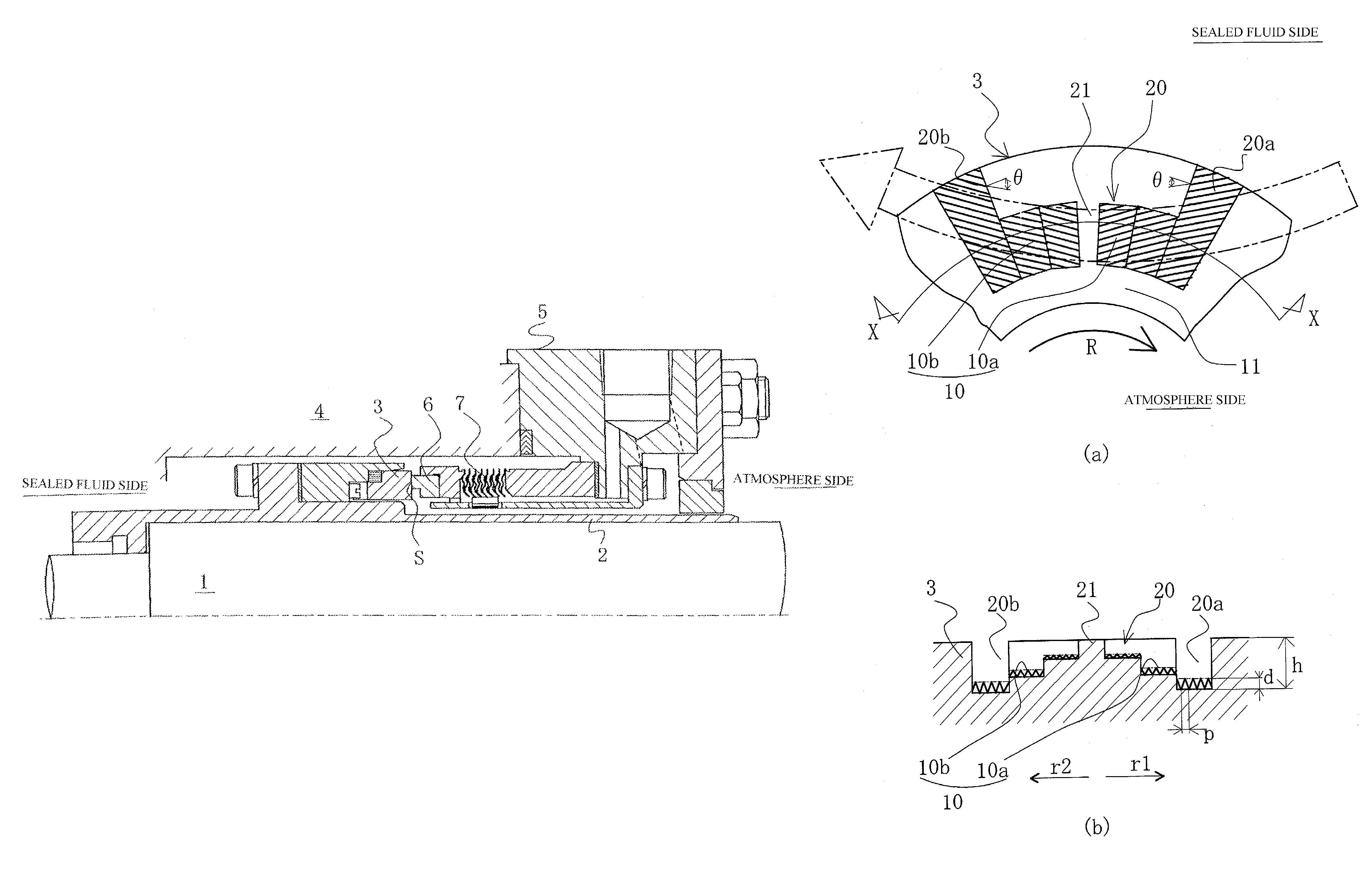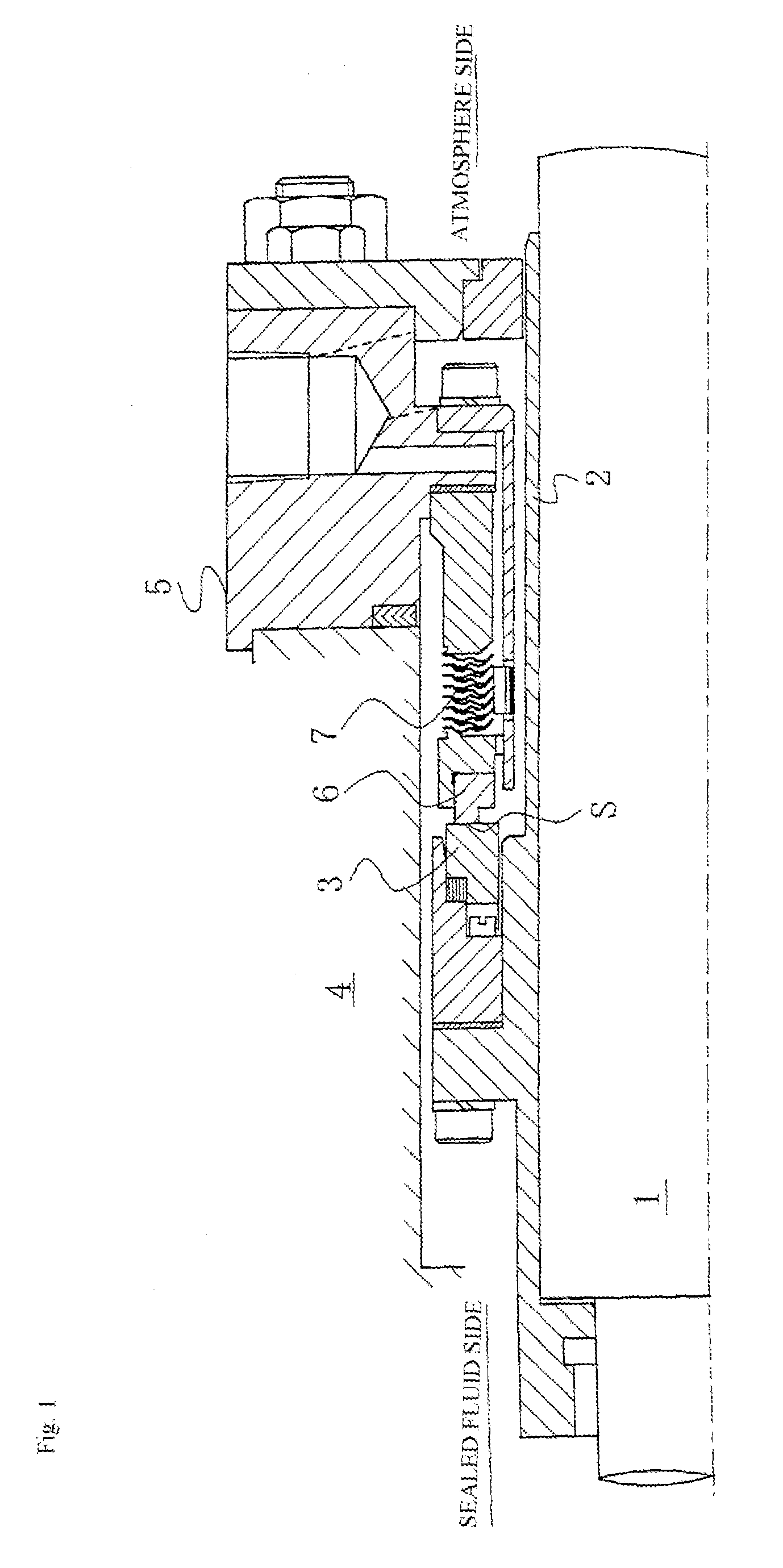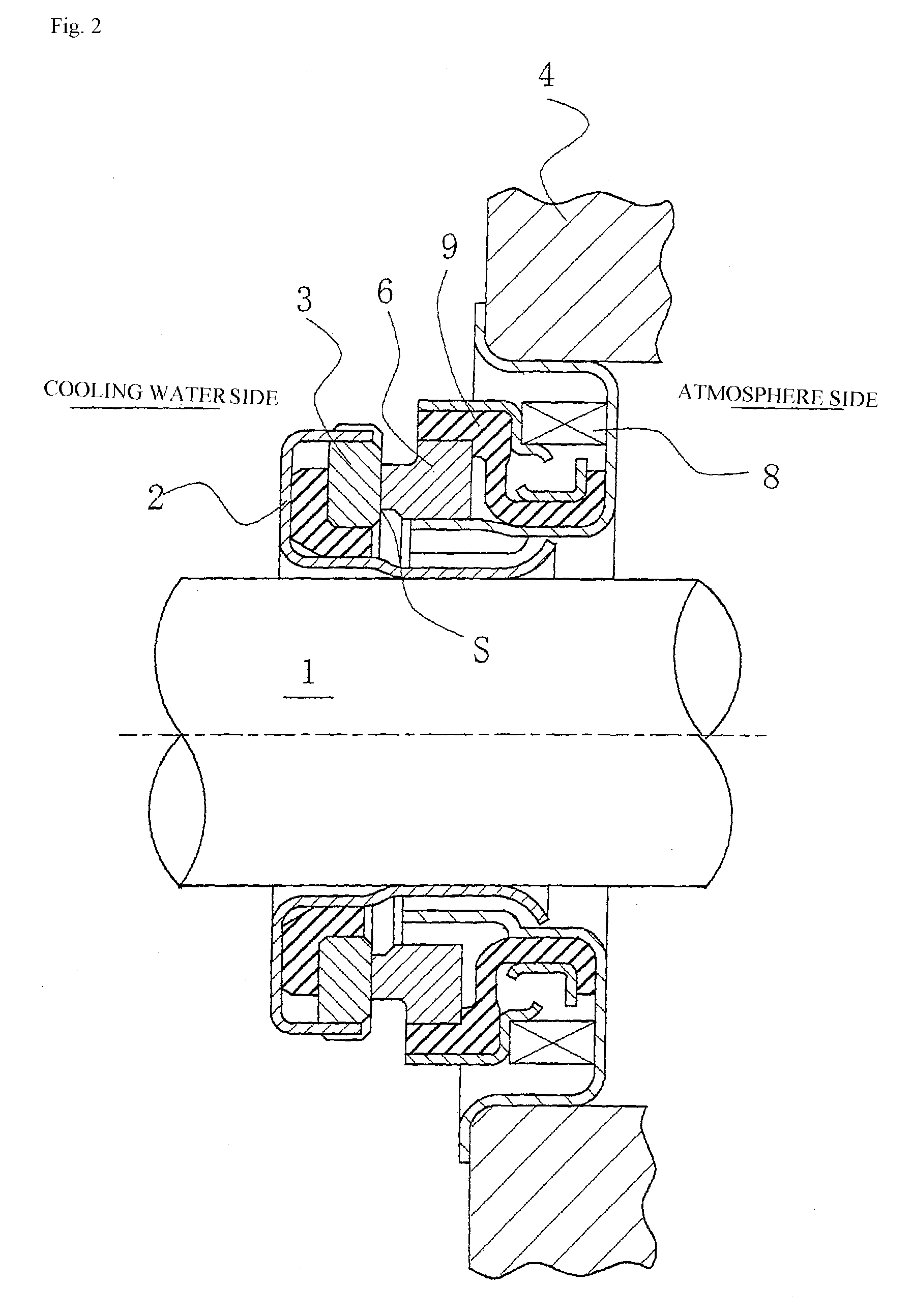Sliding parts
a sliding part and relative rotation technology, applied in the direction of engine seals, mechanical equipment, engine components, etc., can solve the problems of fluid film thickening, leakage of fluid outflow, and lack of seal integrity control elements, so as to reduce sliding resistance, improve sliding properties, stable sliding properties
- Summary
- Abstract
- Description
- Claims
- Application Information
AI Technical Summary
Benefits of technology
Problems solved by technology
Method used
Image
Examples
embodiment 1
[0054]{Embodiment 1}
[0055]FIG. 3 is an illustration of dynamic pressure-generating grooves and pumping areas formed in a sealing face of a rotating ring according to a first embodiment of the present invention, with FIG. 3(a) being a plan view thereof and FIG. 3(b) being a cross-sectional view along line X-X in FIG. 3(a).
[0056]In FIG. 3, the rotating ring 3 is referred to as a mating ring, and is often formed from SiC (a hard material). A plurality of dynamic pressure-generating grooves 20 is discontinuously formed in the circumferential direction of the sealing face S of the rotating ring 3. The dynamic pressure-generating grooves 20 are formed so that, taking one pair of adjacent radial grooves 20a, 20b as a single group, the radial grooves making up the plurality of dynamic pressure-generating groove groups have tapered shapes tapering in opposite directions with respect to the circumferential direction so as to increase in height as they approach a boundary therebetween, and dam...
embodiment 2
[0086]{Embodiment 2}
[0087]FIG. 4 is an illustration of dynamic pressure-generating grooves and pumping area formed in a sealing face of a rotating ring according to a second embodiment of the present invention, with FIG. 4(a) being a plan view thereof and FIG. 4(b) being a cross-sectional view along line Y-Y in FIG. 4(a).
[0088]In FIG. 4, numbers identical to those in FIG. 3 indicate identical parts of FIG. 3; redundant description of these will be omitted.
[0089]The dynamic pressure-generating grooves 20 shown in FIG. 4(a) extend roughly in the radial direction of the sealing face S of the rotating ring 3 from an outer circumferential end towards the inner circumference thereof, and bend in the inner circumferential side to form roughly L-shaped grooves extending roughly in the circumferential direction. The dynamic pressure-generating grooves 20 communicate with the sealed fluid side at the outer circumference of the rotating ring 3, and are configured so as to readily draw the seal...
PUM
 Login to View More
Login to View More Abstract
Description
Claims
Application Information
 Login to View More
Login to View More - R&D
- Intellectual Property
- Life Sciences
- Materials
- Tech Scout
- Unparalleled Data Quality
- Higher Quality Content
- 60% Fewer Hallucinations
Browse by: Latest US Patents, China's latest patents, Technical Efficacy Thesaurus, Application Domain, Technology Topic, Popular Technical Reports.
© 2025 PatSnap. All rights reserved.Legal|Privacy policy|Modern Slavery Act Transparency Statement|Sitemap|About US| Contact US: help@patsnap.com



